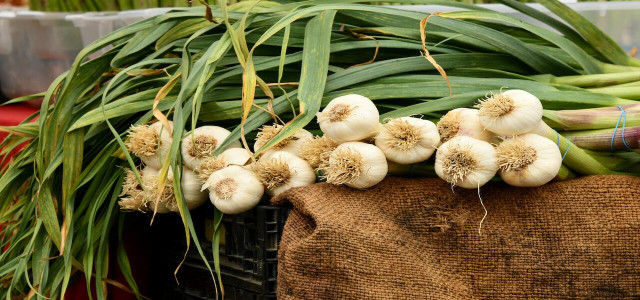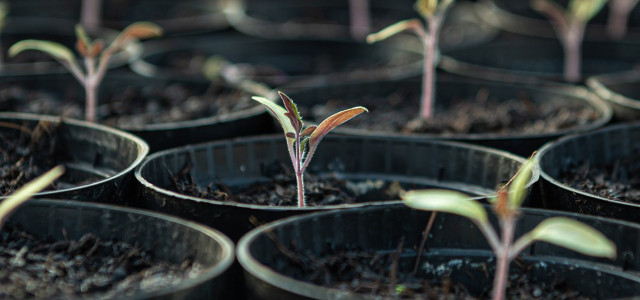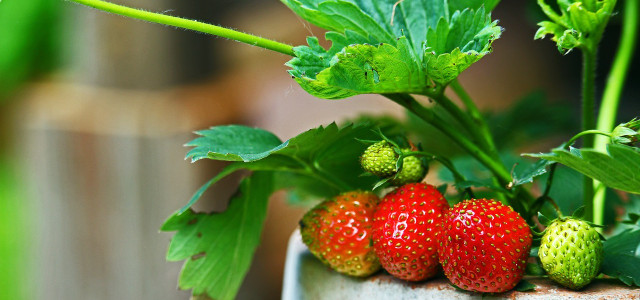Knowing when to plant garlic goes a long way toward successfully growing garlic. Learn all you need to know and more with our helpful guide.
Whether eaten raw or cooked, the health benefits of garlic are vast. Some of the most rewarding ways to reap all of the benefits are if you forage wild garlic or grow it yourself. It doesn’t matter if you have a large garden or are limited to pots on your balcony, you can grow garlic almost anywhere.
Knowing where and when to plant garlic is the most difficult part of the whole process. Once it’s growing, you just need to worry about what you want to do with it after harvest. You can preserve garlic, roast it, freeze it, ferment it, make garlic salt, or even eat the garlic shoots. Just be sure you also learn how to get rid of garlic breath if you’re going to be enjoying your harvest.
Different Types of Garlic
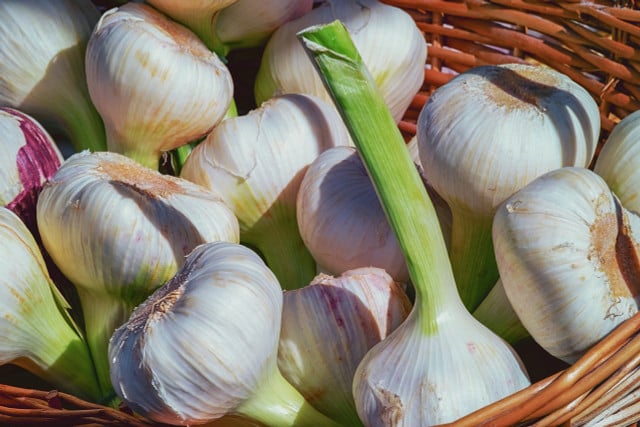
Believe it or not, there is more than one type of garlic out there. In fact, there are eleven different horticultural groups of garlic — though most can fall into one of two categories:
Hardneck
- Best for colder growing regions
- Bonus harvest of scapes as you need to cut the shoots to encourage growth
- Produces fewer, larger cloves of garlic
Softneck
- Grow well in warmer climates with mild winters
- Produces bigger bulbs with smaller cloves
- Generally features a more intense flavor profile
- Can often be stored for longer
Within each of these categories are dozens of cultivars. The garlic you choose to grow is a personal preference depending on the taste and use of the garlic.
Also interesting: Can You Still Harvest Flowing Garlic?
When to Plant Garlic: Zones 0 to 10
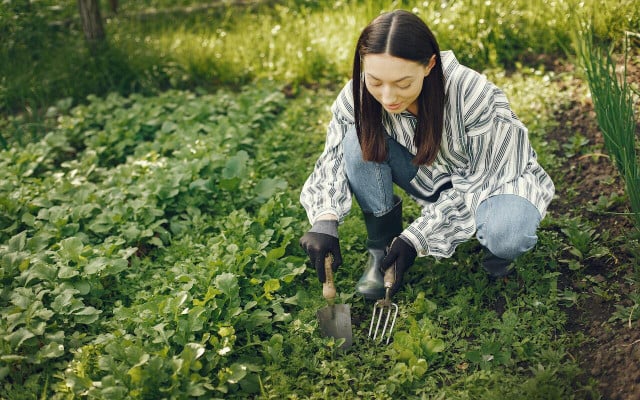


Wondering when to plant garlic? The answer varies depending on which part of the country you live in. In general, the ideal time for planting is from late September through November, approximately 6 to 8 weeks before the first fall frost date. By planting garlic bulbs in the fall, they have time to develop healthy roots before the temperature drops.
When doing any type of gardening, it’s imperative to know which growing zone you live in. For those wishing to grow garlic, here’s the breakdown of when to plant based on your growing zone:
- Zones 0-3: Late August and late September
- Zones 3-5: Mid-September to mid-October
- Zones 5-7: Early to late October
- Zones 7-9: Late October to November
- Zones 9-10: Late October to December
It’s worth noting that you can plant garlic cloves as late as February or March in mild climates, but the bulbs you harvest won’t be nearly as large as if you plant them in the fall.
Choosing the Right Spot
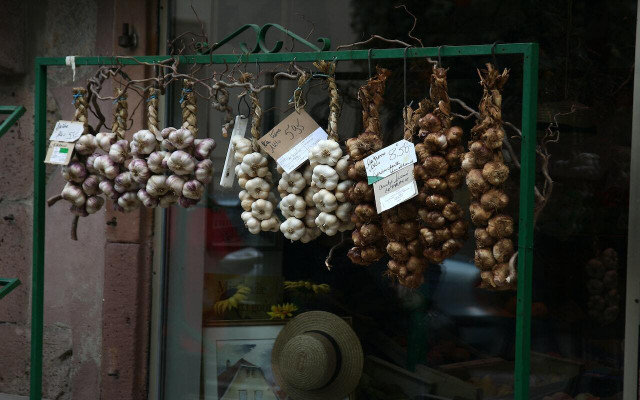


The best soil for planting garlic is sandy loam that’s well-draining — garlic doesn’t like wet soil. If you have drainage issues with your soil, you can try planting in raised beds or in containers. It’s a good idea to mix some fertilizer and compost into your soil before getting started.
Garlic is a sun-loving plant, so you’ll want to choose a location in your garden that receives at least six to eight hours of sunshine. Anything less than that will not produce the same yield.
Tip: If planting garlic in a pot or container, you’ll need to find one that’s at least six inches deep and large enough to leave six inches of space between each clove. It also needs to have excellent drainage.
How to Plant Garlic
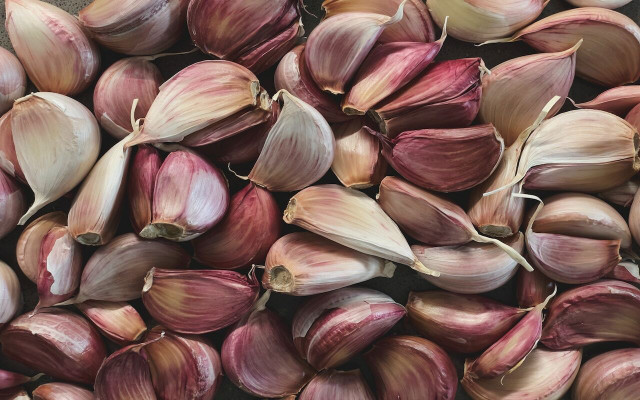


While it may be hard to believe, planting garlic is nearly as simple as placing a clove of garlic in the ground. You don’t have to worry about planting multiple seeds and waiting to see which ones germinate. There are specific bulbs of what’s known as seed garlic that are ideal for planting. Here’s how to plant garlic, step-by-step:
- Select large, healthy cloves, free of disease — the larger the clove, the bigger the head will be.
- Break the cloves away from the bulb a few days before planting, making sure to keep the papery husk intact on each clove.
- Dig a trench in your garden that’s about two inches deep.
- Place the cloves (pointy end up) in the trench approximately six inches apart.
- Cover with the displaced soil and water lightly.
- If you live in a much colder region, cover the planted garlic with four inches of mulch to act as insulation during the cold weather. The mulch will be removed in the spring so the garlic can grow.
Tips for Growing Garlic
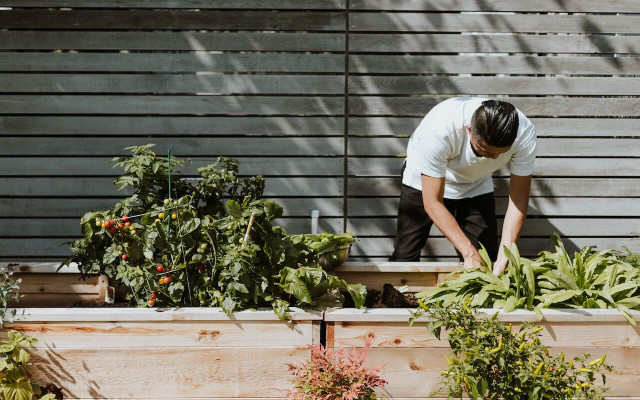


Growing garlic successfully has a lot to do with companion planting and choosing the right additions to your garden. The best companion plants for garlic include:
- Marigolds, nasturtiums and roses
- Spinach, kale and different types of cabbage
- Carrots, potatoes and beets
- Fruit trees
- Tomatoes
There are also a few plants that you should avoid having in the same garden as garlic, as they tend to stunt your garlic’s growth. Watch out for plants like:
- Sage and parsley
- Beans and asparagus
- Strawberries
- Other alliums
Read more:
- Mushroom Mania: 10 Fungi Facts From Forest to Kitchen
- Horticultural Therapy: How Gardening Can Help You Heal
- Wild Garlic Pizza: Easy Vegan Recipe
Do you like this post?






